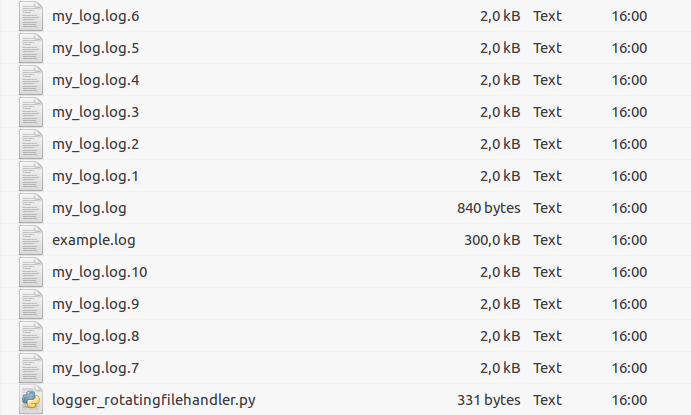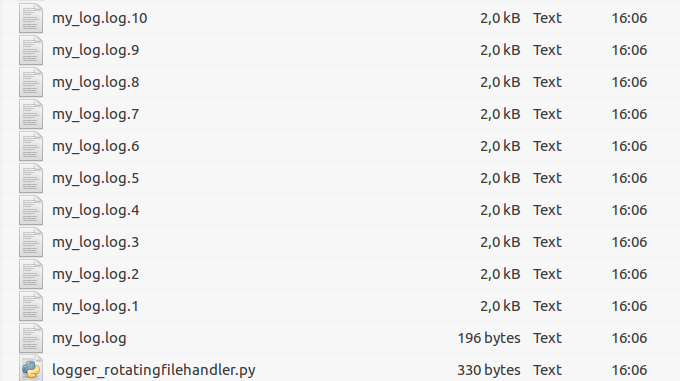I'm trying to do a test run of the logging module's RotatingFileHandler as follows:
import logging
from logging.handlers import RotatingFileHandler
# logging.basicConfig(filename="example.log", level=logging.DEBUG)
logger = logging.getLogger('my_logger')
handler = RotatingFileHandler("my_log.log", maxBytes=2000, backupCount=10)
logger.addHandler(handler)
for _ in range(10000):
logger.debug("Hello, world!")
However, with logging.basicConfig line commented out, the resulting my_log.log file contains no data:
If I comment in the line with logging.basicConfig(filename="example.log", level=logging.DEBUG), I get the expected my_log.log files with numbered suffixes. However, there is also the example.log which is a (relatively) large file:
How can I set up the logging so that it only generates the my_log.log files, and not the large example.log file?





debug(),info(),warning(),error(),exception(),critical()hierarchy) do not get logged (in this case, written to the output file). – Hermann